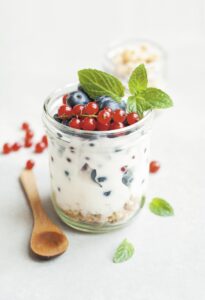 Hormones are magical chemical substances that act like messengers in the body. After being made in one part of the body, they travel to other areas where they help control how cells and organs do their work.
Hormones are magical chemical substances that act like messengers in the body. After being made in one part of the body, they travel to other areas where they help control how cells and organs do their work.
Among these hormones are estrogen, testosterone and progesterone. Males and females make all three, but in different amounts. Ideal hormone balance occurs when the body has just the right amount of each hormone available to operate at peak health. Research studies are discovering factors that can create hormone imbalances, as well as offering solutions to balance hormones.
One chemical substance famous for disrupting hormone balance is Bisphenol A (BPA). It is a chemical found in hard plastics and the coatings of food and drink cans which can behave in a similar way to estrogen and other hormones in the human body. It is also used to make water bottles, baby bottles, eyeglass lenses, DVD’s and more.
One study from the UK found that BPA reduces testosterone levels in men. Another study from Massachusetts found a link between BPA and infertility in women. It has also been linked to diabetes and heart disease. A few key ways to avoid exposure to BPA is to not eat or drink foods or beverages from cans, and to avoid drinking water from plastic water bottles unless the labeling says it is BPA free. Although plastic containers contain other toxins as well. The safest option is to filter the tap water by removing chlorine and other chemicals such as fluoride, and store it in glass carrying bottles.
Research from the University of Chicago has found that sleep deprivation can have a pronounced effect on one’s hormonal health. The pituitary gland in the brain is known as the “master gland” as its hormones control the thyroid gland, adrenals, ovaries and testes. The pituitary is markedly influenced by sleep. During sleep, beneficial hormonal factors are activated, but these are greatly reduced by sleep deprivation. On a positive note, the alterations that occur during a sleepless night can be completely reversed during recovery sleep.
A study from the journal “Obstetrical and Gynecological Survey” shared the many beneficial effects that omega 3 fats can have on women’s hormone balance. These healthy fats are found in salmon, sardines, fish oil capsules, olive oil and fresh vegetables. Omega 3’s can reverse PMS and increase fertility in women. The researchers also mention evidence showing omega 3’s can prevent menopause symptoms, postmenopausal osteoporosis and heart disease.
According to Dalene Barton-Schuster, Senior Herbalist, studies have shown that extreme exercise results in hormonal disruption. She says “Regular, moderate exercise has been shown to strengthen muscles, build stamina, increase flexibility, increase circulation, reduce stress and prevent depression and anxiety — while also promoting regular detoxification of excess hormones and toxins in the body.”
Jobee Knight, a nutritional researcher and founder of Nutrition Breakthroughs in Glendale California, is someone who fought her own battle against hormone imbalance, sleeplessness and insomnia. She decided to put her background to use by searching out effective natural insomnia remedies for relaxation and deeper sleep.
The result was Sleep Minerals II, a sleep remedy that contains highly absorbable forms of calcium and magnesium, combined with vitamin D and zinc. The ingredients are formulated in a softgel with healthy oils, making them more quickly absorbable than tablets or capsules and providing a deeper, longer-lasting sleep.
Richard P. of Parkville, Maryland says: “The Sleep Minerals are making quite a difference. I was regularly waking up at around 3:00 a.m. and couldn‘t go back to sleep. Now I wake up once to go to the bathroom, but the great thing is, I then fall back asleep and sleep several more hours.”
In summary, take some good steps to keep your hormones balanced with the right combination of food and healthy fats, moderate exercise, avoiding plastic containers, and using absorbable forms of calcium and magnesium to ensure a sound sleep.
This health news is shared by Nutrition Breakthroughs, a provider of natural health articles and effective natural remedies since 2001. Nutrition Breakthroughs makes the original calcium and magnesium based sleep aid Sleep Minerals II, as well as Joints and More, the natural solution for joint relief, aches and pains, and stronger hair and nails.











